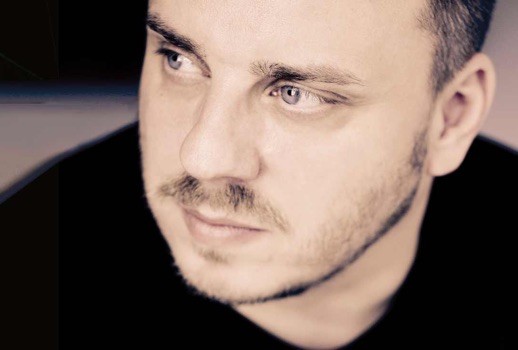
He swayed, shifting his weight from foot to foot, leaning toward the piano, only to turn away again. His voice—mysterious, enchanting—resonated throughout the hall with supernatural ease: a plush sound, welling up from a liberated a body, a physicality not bound by the conventional, rigid stances of the traditional recital.
This liberated, resonating corporeality was the centerpiece of an intelligent recital presented by the baritone, with pianist Alexander Schmalcz, at Alice Tully Hall Wednesday night. It was an exercise in fluidity, endlessly dynamic, deferring applause in favor of a precise, sacred procession through words and music.
An astute meditation, the program imbricated the music of three composers— Schumann, Wolf, and Hanns Eisler—and hinged on a posture of atomization, isolation, and mortality. In fact, melding the two stalwart masters with the lesser-heard Eisler proved radical in the best sense of the word, and the evening eschewed rigid formality in favor of a galvanizing, organic spontaneity.
This was achieved through an acute attention to words, which proved a unifying factor for the evening’s proceedings. In this context, writers such as Eichendorff, Goethe, and Blaise Pascal provoked a vigorous counter-discourse to Bertolt Brecht’s numbing, modern lens, and the program proceeded via poetic illuminations on the nature of solitude, longing, and stillness.
This reliance on poetic, rather than musical, direction makes the complex program difficult to summarize. Book-ended by Schumann songs from 1850-1851, Eisler proved the dominant thread throughout. Much of the program derived from his Hollywood Liederbuch (1942-43) and Die Hollywood-Elegien (1942): terse, imagistic songs with text by Brecht.
In these selections, quotidian objects such as masks, radios, books, and suitcases take on existential dimensions. And these observations complimented the chromatic melancholy of other pieces in the recital—for example, Wolf’s Harfenspieler I-III (1888), with text by Goethe, covers similar affects.
While traditional recitals present each set as part of a larger, formal survey, Goerne’s program moved between the three composers casually. Consequently, the attending structure of the evening arose through subject matter, and not via the traditional expectations of the recital set.
The result invoked the form of a symposium, placing Schumann, Wolf, and Eisler in a nimble conversation with one another. It was something of a séance, as Goerne’s performance summoned to the stage the ghosts of three distinct idioms, allowing these musical geniuses to converse, mingle, and exchange.
Central to this formulation was Goerne’s robust, virile sound: effortless, fully embodied, at turns lithe and stormy. The effect was shocking—I did not realize that this kind of pleasure still existed in the recital hall. (Where does this chutzpah come from? Liberated and sensual, keenly self-directed).
While some might find this mode narcissistically idiosyncratic (perhaps self-indulgent), I found Goerne’s intense presence to be deeply unselfconscious, a living organism discovering the contours of the music’s emotional form: an artist reveling in the pleasure he produces for himself.
The effect was startling in that one felt as if the performance was a moment of private self-discovery, a revelation overheard, and not something offered for our consumption. Goerne’s persona seemed taciturn, elusive, and perhaps even slightly cantankerous. There was absolutely no patter to put his audience at ease.
The baritone felt no need to be charming or convivial. Instead, his work provided something far more rare, far more exciting than the cult of personality. He cast himself as a channel for the greater gods of art and beauty. He was the medium, and not the message; a spirit blew through him—in short, he was inspired.
With such intoxicating currents coursing through the hall, one can imagine my disappointment regarding Goerne’s use of a music stand. Perhaps I’m being a bit crotchety—but, is it too much to ask that singers memorize their music?
As a result, Goerne seemed torn throughout his performance between the metaphysical transport engendered by his own singing, his devotion to the musical spirits he summoned, and his need to periodically glance at the sheet music on the stand. While generally confident enough to look away, there were unfortunate moments throughout the performance when he turned to the sheet music briskly, seizing on it like a lifeline.
However, this minor drawback could not possibly ruin an evening that otherwise remained unparalleled. Alexander Schmalcz’s understated playing was a subtle buttress to Goerne’s oracular sensitivity, and the two worked together as a united entity. Such collegiality merely added to a program noteworthy for its coherency.
It was a very fruitful collaboration; indeed, Goerne’s recital proffered a new standard for the possibilities of recitals, one that explores the discourse of song, in all its echoes and resonances.



